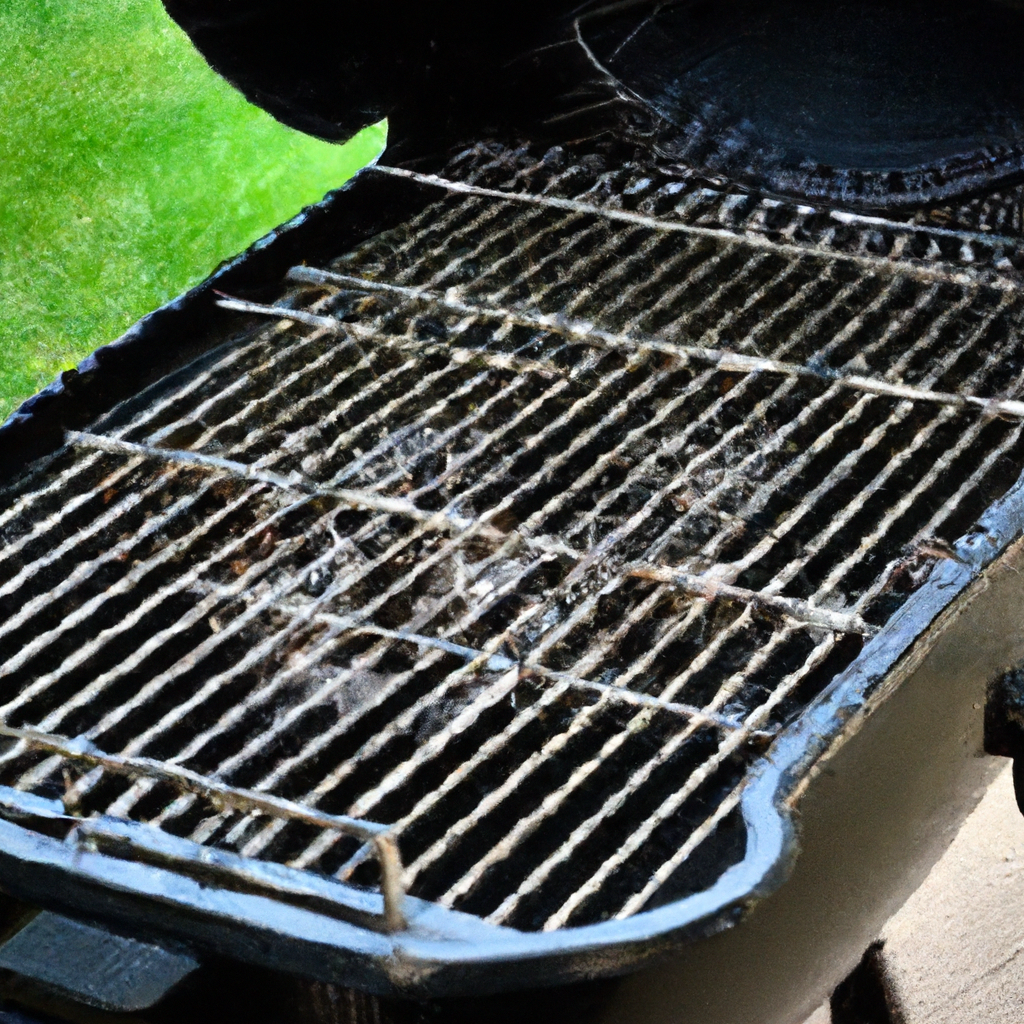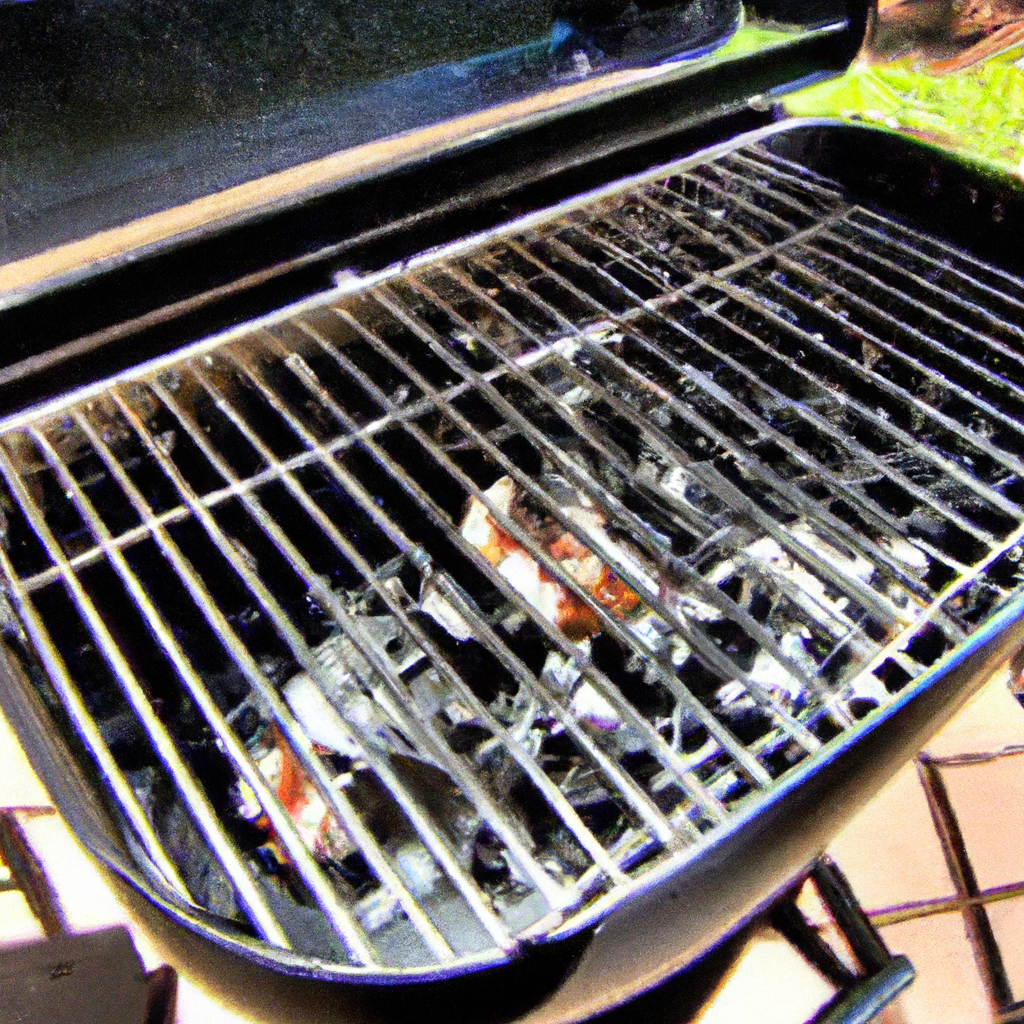So you just got yourself a brand-new grill, and you’re eager to fire it up for the first time. But before you toss on those juicy steaks or sizzling burgers, there’s an important step you shouldn’t skip: seasoning your grill. Properly seasoning your new grill not only helps improve its longevity but also ensures that your food cooks evenly and develops that irresistible smoky flavor. In this article, we’ll guide you through the best way to season a new grill, giving you all the tips and tricks you need to get your grilling game off to a sizzling start.
Why Seasoning a New Grill is Important
Seasoning a new grill is a crucial step in ensuring optimal performance and longevity of your grill. By taking the time to properly season your grill, you can enhance the flavor of your food, prevent rust and corrosion, and create a non-stick surface that makes cooking and cleaning a breeze. In this article, we will explore the importance of seasoning and guide you through the steps to season a new grill, whether it’s a gas or charcoal grill. We will also discuss alternative methods for seasoning, common mistakes to avoid, and tips for maintaining a well-seasoned grill.
1. Understanding the Purpose of Seasoning
1.1 Preparing the Grill for Cooking
One of the primary reasons for seasoning a new grill is to prepare the cooking surface for future use. Seasoning involves coating the grill grates with oil and heating them to create a barrier that prevents food from sticking. This process not only improves the overall cooking experience but also helps to protect the grates from rust and corrosion.
1.2 Enhancing Flavor
Seasoning a new grill can also significantly enhance the flavor of your food. As the oil heats, it infuses into the grates, creating a natural seasoning that adds depth and richness to your dishes. This flavor enhancement can make a noticeable difference in the taste of your grilled meats, vegetables, and other foods.
1.3 Preventing Rust and Corrosion
Another crucial aspect of seasoning a new grill is its ability to prevent rust and corrosion. By coating the grill grates with oil, you create a protective layer that shields the metal from moisture and oxidation. This is especially important if you grill outdoors or live in an area with high humidity. Seasoning your grill regularly can help prolong its lifespan and maintain its aesthetic appeal.

2. Choosing the Right Oil for Seasoning
When it comes to choosing the right oil for seasoning your grill, there are several factors to consider. The oil you select should have a high smoke point, a neutral flavor, and be easily accessible. Let’s explore these factors further:
2.1 High Smoke Point Oils
Since the seasoning process requires heating the grill to high temperatures, it is essential to choose an oil with a high smoke point. Oils with high smoke points can withstand the heat without breaking down or producing harmful fumes. Some popular high smoke point oils include canola oil, grapeseed oil, and peanut oil.
2.2 Neutral Flavor Oils
To ensure that the flavor of your food remains unaffected, it is best to opt for oils with neutral flavors. These oils won’t overpower the natural flavors of your dishes but still provide the necessary lubrication to prevent sticking. Examples of neutral flavor oils include vegetable oil and avocado oil.
2.3 Examples of Suitable Oils
Based on the criteria mentioned above, some suitable oils for seasoning a new grill are canola oil, grapeseed oil, vegetable oil, and avocado oil. These oils are readily available in most kitchens and offer the desired smoke point and neutral flavor characteristics necessary for proper seasoning.
3. Steps to Season a New Grill
Now that you understand the importance of seasoning and have chosen the right oil, let’s delve into the step-by-step process of seasoning a new grill. While the specific steps may vary slightly depending on the type of grill, the general principles remain the same.
3.1 Cleaning the Grill Grates
Before seasoning your new grill, it is crucial to clean the grill grates thoroughly. Remove any manufacturing residues or debris that may be present. Use a wire brush or grill scraper to scrape off any stubborn particles. Cleaning the grates ensures that you have a clean surface to work with and promotes even heat distribution during the seasoning process.
3.2 Applying the Oil
Once the grill grates are clean, it’s time to apply the oil. Using a basting brush or a lint-free cloth, evenly coat the grates with a thin layer of the chosen oil. Make sure to cover both sides of the grates as well as the sides of the grill grates if they are exposed. Avoid applying too much oil, as it may lead to excessive smoking or flare-ups during the heating process.
3.3 Heating the Grill
After applying the oil, it is time to heat the grill. Turn on the grill and set it to high heat. Close the lid and allow the grill to heat for approximately 15-20 minutes. This high heat will help the oil penetrate and bond with the metal, creating the non-stick surface needed for successful grilling.
3.4 Repeating the Process
To ensure optimal seasoning, repeat the oil application and heating process at least two to three times. This will help build up the protective layer on the grill grates and enhance the non-stick properties. It is essential to follow this seasoning process each time you acquire a new grill or if you have replaced the grill grates.

4. Seasoning a Gas Grill
Seasoning a gas grill follows a similar process to seasoning other types of grills. However, there are a few additional considerations specific to gas grills that you should keep in mind. Let’s explore the steps involved in seasoning a gas grill.
4.1 Preparing the Gas Grill
Start by ensuring that the gas supply to the grill is turned off. This is important for safety reasons as well as to prevent any flare-ups during the seasoning process. Remove the grill grates and thoroughly clean them using a wire brush or grill scraper. Additionally, clean any other removable parts of the gas grill, such as flavorizer bars or heat deflectors.
4.2 Applying the Oil
Once the grill grates and other removable parts are clean, apply a thin layer of oil to the grates using a basting brush or lint-free cloth. Ensure that the oil coats all sides of the grates evenly. Avoid applying oil to any other parts of the gas grill, as it may interfere with its functionality.
4.3 Heating the Grill
Turn on the gas supply to the grill and ignite the burners. Set the burners to high heat and close the lid. Allow the grill to heat for approximately 15-20 minutes, or until it reaches the desired temperature. This heating process will help bond the oil to the grill grates and create a non-stick surface.
4.4 Repeating the Process
To achieve optimal seasoning, repeat the oil application and heating process at least two to three times. This will ensure a well-seasoned gas grill with excellent non-stick properties. Remember to season your gas grill regularly, especially if it is exposed to the elements or not in regular use.
5. Seasoning a Charcoal Grill
Seasoning a charcoal grill is also a crucial step in its maintenance and performance. While the overall process is similar to seasoning other types of grills, there are specific steps unique to charcoal grills. Let’s explore how to properly season a charcoal grill.
5.1 Preparing the Charcoal Grill
Start by preparing your charcoal grill for seasoning. Ensure that the grill grates are clean and free from any debris. Remove the ash from the charcoal tray and make sure the vents are clear. This preparation will help ensure even heat distribution during the seasoning process.
5.2 Applying the Oil
Once the charcoal grill is prepared, apply a thin layer of oil to the grill grates using a basting brush or lint-free cloth. Make sure to cover both sides of the grates evenly. Avoid applying oil to any other parts of the grill, as it may affect the charcoal’s combustion.
5.3 Heating the Grill
Now it’s time to heat the charcoal grill. Fill the charcoal tray with briquettes or lump charcoal and ignite them according to the manufacturer’s instructions. Once the coals are lit and covered with a layer of ash, spread them evenly across the charcoal tray. Close the lid and allow the grill to heat for approximately 15-20 minutes.
5.4 Repeating the Process
To achieve optimal seasoning, repeat the oil application and heating process at least two to three times. This will help develop a well-seasoned charcoal grill with excellent non-stick properties. Remember to season your charcoal grill regularly, especially if it is exposed to the elements or not in regular use.
6. Alternative Methods for Seasoning
While the oil method is the most common way to season a new grill, there are some alternative methods you can try. These methods can add an additional layer of flavor to your grill and provide a unique touch to your cooking.
6.1 Onion Method
The onion method involves cutting an onion in half and rubbing it over the grill grates. The natural oils from the onion create a barrier that helps prevent sticking and adds a subtle flavor to your food. This method is especially popular for grilling vegetables and seafood.
6.2 Potato Method
The potato method is similar to the onion method, but instead of using an onion, you use a potato. Cut a potato in half and rub it over the grill grates, allowing the starchy juices to coat the surface. This method can produce a natural non-stick surface and add a hint of potato flavor to your grilled dishes.
6.3 Bacon Method
For those who enjoy the delicious flavor of bacon, the bacon method can be a great alternative for seasoning a new grill. Simply lay a few strips of bacon on the grill grates and cook them until crispy. The rendered bacon fat will help season the grates and leave a smoky, bacon-infused flavor on your grill.
7. Maintaining a Well-Seasoned Grill
Seasoning a new grill is not a one-time task; it requires ongoing maintenance to keep your grill in optimal condition. Here are some tips for maintaining a well-seasoned grill:
7.1 Regular Cleanings
Regularly clean your grill grates and remove any food particles or debris. Scrub the grates with a wire brush or grill scraper to ensure they remain in good condition. This will not only help preserve the seasoning but also prevent the buildup of residue that can affect the flavor of your food.
7.2 Proper Storage
When not in use, store your grill in a dry and sheltered area to prevent exposure to moisture. Moisture can lead to rust and corrosion, making it essential to protect your grill from the elements. Covering your grill with a waterproof grill cover can provide an extra layer of protection.
7.3 Periodic Re-Seasoning
Over time, the seasoning on your grill grates may wear off or become less effective. To maintain a well-seasoned grill, periodically re-season your grates following the steps outlined earlier in this article. This will help restore the non-stick surface and keep your grill performing at its best.
8. Common Mistakes to Avoid
To ensure a successful seasoning process and maintain a well-seasoned grill, it is crucial to avoid certain common mistakes. Here are some mistakes to be aware of and avoid:
8.1 Using the Wrong Oil
Using the wrong oil can negatively impact the seasoning process and the flavor of your food. Avoid using oils with low smoke points, as they can produce harmful fumes and break down at high temperatures. Additionally, oils with strong flavors, such as olive oil or sesame oil, may overpower the natural flavors of your dishes.
8.2 Not Cleaning Properly
Failure to clean your grill grates thoroughly before seasoning can lead to poor adhesion of the oil and uneven seasoning. Take the time to remove any manufacturing residues, debris, and built-up grease. This will ensure a clean and receptive surface for the oil to bond with.
8.3 Neglecting Regular Seasoning
Seasoning is not a one-time task; it requires regular upkeep to maintain the non-stick surface and prevent rust. Neglecting to season your grill regularly can result in decreased performance and potentially costly repairs. Make seasoning your grill a part of your routine maintenance to ensure its longevity.
10. Final Thoughts
Seasoning a new grill is a vital step in preparing it for cooking, enhancing flavor, and preventing rust and corrosion. By choosing the right oil, following the proper steps, and avoiding common mistakes, you can ensure a well-seasoned grill that provides optimal grilling results. Whether you have a gas or charcoal grill, taking the time to season it properly will greatly enhance your grilling experience and the deliciousness of your dishes. Remember to maintain your well-seasoned grill through regular cleanings, proper storage, and periodic re-seasoning. So go ahead, fire up your grill, and savor the incredible flavors that come from a well-seasoned cooking surface. Happy grilling!


